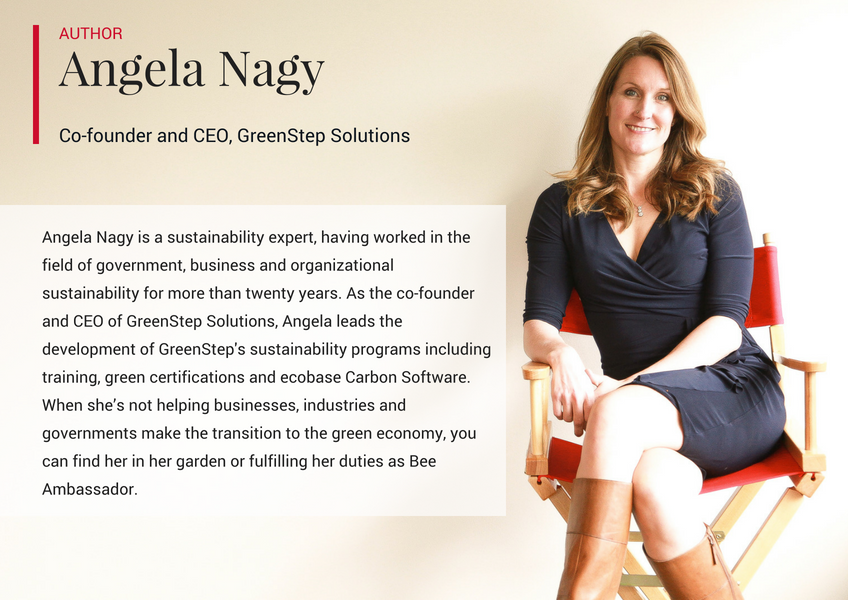Angela Nagy joins us as our new #OKGNtech columnist, starting with the first edition of Cleantech News.
Can Cleantech Save the World?
It’s been said that we currently have all the technology we need to tackle the world’s biggest environmental challenges, like climate change, water, air and soil pollution, and the negative impacts these problems are creating for human health, natural ecosystems, and our economy. Plus, investments in new and improved technologies are happening every day.
What is CleanTech?
In a nutshell, according to Investopedia, “Cleantech firms seek to increase performance, productivity, and efficiency by minimizing negative effects on the environment.” Wikipedia further states that “Clean technology refers to any process, product, or service that reduces negative environmental impacts through significant energy efficiency improvements, the sustainable use of resources, or environmental protection activities.”
So, cleantech, or greentech as it is often called, covers a broad range of businesses and applications. Businesses can either be creating clean and green technologies, while many businesses are taking steps to integrate these technologies into their existing operations and business models.
At GreenStep, we consider ourselves a greentech company, because we’re applying the use of technology and innovation to enable us to help thousands of businesses, governments and institutions integrate clean and green technologies to improve their environmental performance, while reducing their impacts and costs.
Who Uses Cleantech?
Well, everybody! In one way or another, we are likely using clean technology and innovation in our lives and in the places we work. Think emissions controls on vehicles, LED lights, smart meters, air filtration systems, bio-composites, modular building, low flow fixtures and drip irrigation, certified organic food, and goods, recycled paper, lighting or HVAC programmable sensors and controls. The list goes on.
These types of clean and green innovations have been incorporated into almost every industry and include a wide range of products, services and processes related to energy efficiency, renewable energy, recycling and waste reduction, the built environment, IT solutions, low carbon transportation, emissions reductions, organic agriculture, green chemistry, water conservation and much, much more. Often, the use of these more common technologies has been legislated or incentivized. In many cases, these technologies not only help reduce negative environmental impacts, they also help to reduce costs through efficiency gains.
So, Can Cleantech Save the World?
Absolutely, and we could do it today if everyone jumped on board. Unfortunately, most of these technologies are not being deployed as quickly as they could be, primarily due to a lack of awareness and understanding of the tremendous economic and other benefits that can come from implementing these technologies in a strategic way, that would also simultaneously reduce greenhouse gas emissions and other pollution and environmental degradation, while at the same time make our economy more resilient and competitive and create jobs.
Canada’s Economic Development Commission estimates that the opportunity for Canadian companies to bring our homegrown cleantech solutions to the international marketing is worth $1 trillion and expected to surpass $2.5 trillion by 2020.
A recent report published by Citi Global Perspectives and Solutions, a division of Citibank, “Energy Darwinism II: Why a Low-Carbon Future Doesn’t Have to Cost the Earth. In short, the global cost of climate inaction is estimated to be $192 trillion, and the cost of actually solving the climate crisis is $190.2 trillion.
So, globally we would be saving $1.8 trillion, “and also the existential future of the human race,” while in Canada we have a $2.5 trillion dollar market opportunity. If we want cleantech to save the world, we can make it happen, and profit from it, but we have to stop asking “how can we afford to tackle climate change,” and start asking, “how can we afford not to?”
Today, if you’re not including clean and green technology in your business and home, you’re probably wasting money and creating negative impacts you’d probably like to avoid. Continued investment in clean and green technology is essential to accelerating our society’s ability to tackle the world’s biggest environmental challenges while transitioning to the green economy.
Connect with the author Angela, Co-founder and CEO at Greenstep Solutions.







